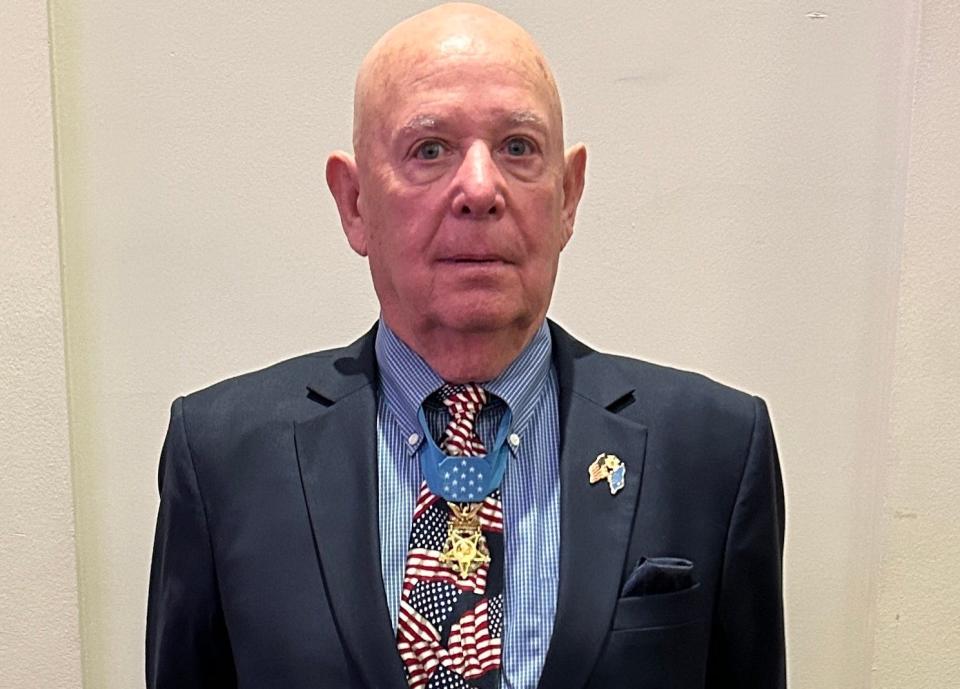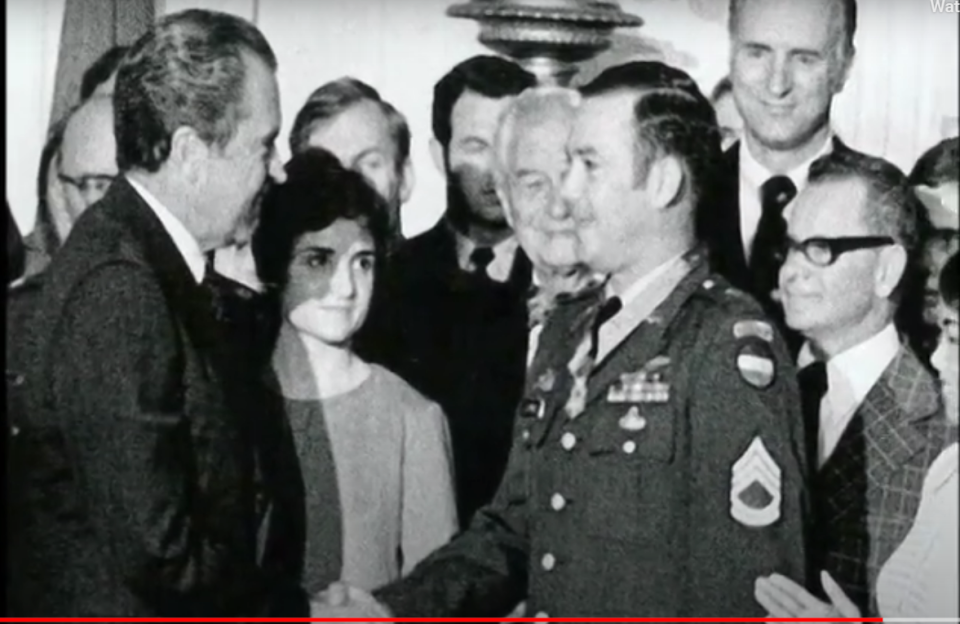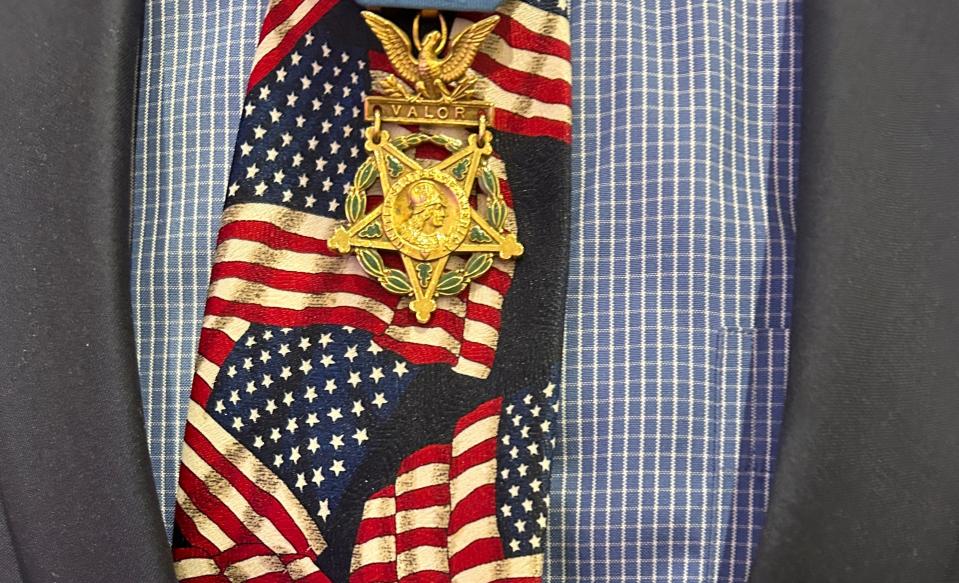Congressional Medal of Honor recipient: Let's take care of our veterans
LAKE WORTH BEACH — On April 8, 1970, Gary Littrell thought his life was about to end.
He was serving as an adviser to a South Vietnamese battalion of 473 U.S. Army Rangers trapped on a hillside in Kon Tum Province near the Cambodian border. Enemy forces surrounded the Rangers, who were being assisted by Littrell and two other American advisers.
Littrell detailed his harrowing experience Sunday to more than 300 residents of the Valencia Shores retirement community west of Lake Worth Beach, as part of a Veterans Day tribute arranged by the community's Men's Club.
Littrell received the Congressional Medal of Honor in 1973 for keeping the battalion inspired while he directed artillery and air support, distributed ammunition, strengthened faltering defenses, cared for wounded, and shouted encouragement to the Vietnamese soldiers in their own language.

Littrell was 24 years old when the battle on the hilltop began. "I was referred to as 'the old man.' My primary job was to get the Vietnamese to stand and fight."
The North Vietnamese enemy force of more than 5,000 pinned down the 23rd Battalion, 2nd Ranger Group, for four days. Once the Rangers had set up a defensive perimeter, the enemy launched a barrage of mortar fire that killed the unit's South Vietnamese commander and one of Littrell's fellow American advisers.
"It was a four-day, 24-hour-a-day fight that started with the artillery barrage. On the fourth night, I thought I'd never see the sun again," he told The Post. "We had little left. We were just about out of ammunition. Of the 473 Rangers, only 41 remained, and many of them were injured. My God and I have our own thing going. He left me here for a reason. Not sure I found that reason yet.”

The enemy, Littrell explained, had also sustained heavy casualties, noting: "I was expecting another wave on the fifth day. If it came, we were done. Luckily for us, the enemy had little left as well. That wave never came."
Thanks to air support called in by Littrell, he and his Rangers were able to make it down the hill to safety after a five-mile-plus walk. They encountered several ambushes along the way.
When he was awarded the Congressional Medal of Honor by President Richard Nixon, Littrell was praised for his "sustained extraordinary courage and selflessness." Littrell jokingly noted that when he went to Washington to receive the medal, Nixon, who would resign in August 1974 over the Watergate scandal, was between "Watergate and goodbye. I'm told it was one of the quickest ceremonies ever held. The president had other things on his mind."
Littrell retired from the Army in 1983, and then worked for the Veterans Administration. Littrell called himself one of the lucky combat veterans. He escaped relatively unscathed. Others were not so fortunate, he noted.

Littrell said two others received the Medal of Honor with him in 1973. One was Kenneth Kays, a conscientious objector who initially fled to Canada when the military wouldn’t accept his status. When the military recognized his conscientious objector status, he left Canada and joined the military as a medic where he served in Vietnam.
In a deadly firefight, Kays attempted to administer medical aid to wounded soldiers. He lost a leg in combat. Littrell said he became friendly with Kays, who was never able to overcome post-traumatic stress disorder (PTSD).
No two people are the same when it comes to dealing with PTSD, Littrell explained. Kays went into total isolation. At the age of 42 in 1991, he took his own life, Littrell said.
Twenty-two veterans a day commit suicide, Littrell said, imploring audience members: "If you see a veteran in trouble, help them get the help they need before it is too late."
Mike Diamond is a journalist at The Palm Beach Post, part of the USA TODAY Florida Network. He covers Palm Beach County government and transportation. You can reach him at mdiamond@pbpost.com. Help support local journalism. Subscribe today
This article originally appeared on Palm Beach Post: Congressional Medal of Honor recipient recounts Vietnam War battle

